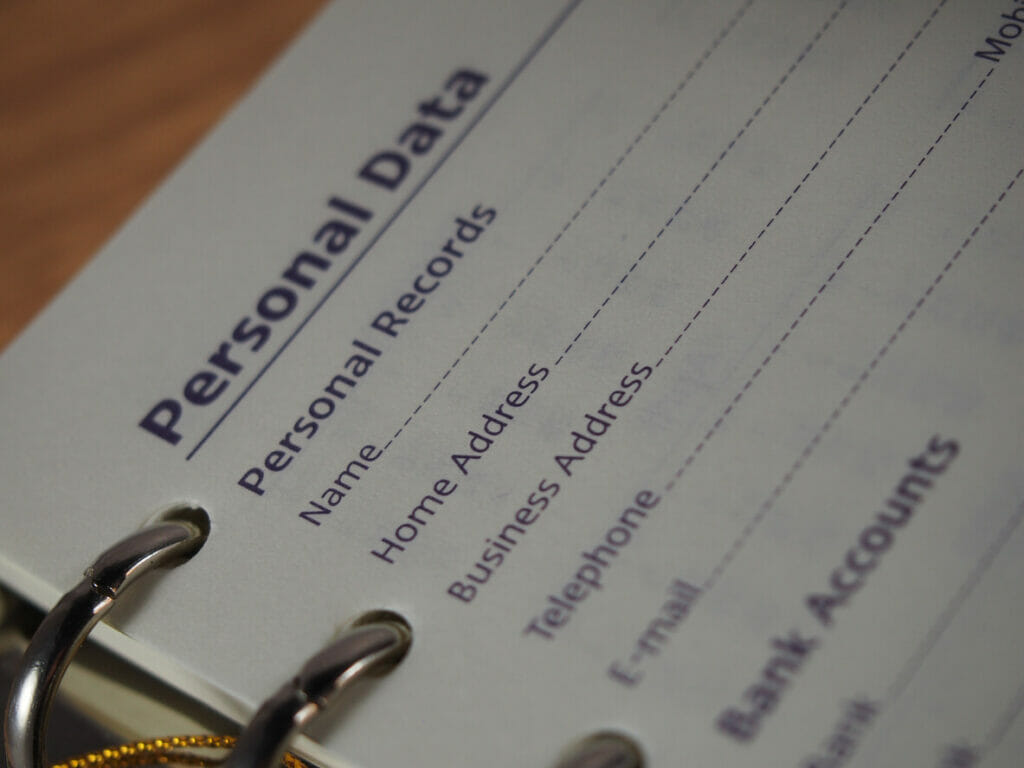Residential communities have a legal obligation to retain records pertaining to condo/HOA business. That includes things like governing documents, maintenance records, insurance records, architectural plans and annual budgets. When you stop to think about how much information a community accumulates in a single year, you quickly realize why it’s better to have a digital archive than a physical one.
Download our free document request form
In addition to reducing stacks and stacks of paper records, it’s generally easier for people to locate specific items when they’re not hidden at the back of a file cabinet. Members of the condo/HOA have certain rights to inspect and copy some association records, and the last thing anyone wants to do is spend 30 minutes looking for an insurance policy.
Table of contents
- What types of documents can owners request to see?
- What types of documents should be kept private?
- How to request documents
- How to make common documents more accessible
While not all records are subject to inspection by members, communities must allow members to see certain documents. The types of documents, and manner in which they can be delivered/viewed, will vary depending on state or provincial laws as well as your community’s governing documents.
Below we’ll look at some of the documents that owners can and cannot request from their condo/HOA. Please keep in mind that these are just guidelines; your community may have different rules about what documents are considered public and private.
What types of documents can owners request to see?
Generally speaking, owners have a right to see any condo/HOA documents that detail how their money is being spent. As long as the records do not disclose private information and are not privileged under law, there is a reasonable chance that these documents can be viewed by any member who requests them, and perhaps even copied.
Financial reports
Owners pay fees to keep the community going, so they certainly have a right to review budgets, reports, reviews, audits, invoices, records of receipts, etc. In many cases, condos/HOAs are only required to provide accounting and financial records for the current fiscal year, and the two years prior to the current one.
Governing documents
The articles of incorporation, bylaws, CC&Rs, rules and regulations must be provided to owners. People are less likely to break the rules when they are clear about what the rules are, so it benefits everyone to make governing documents easily accessible.
Documents from the developer
Records from the developer, including community plats, maps, permits, and land surveys, are usually considered items that owners have a right to review.
Meeting minutes
Meeting minutes serve as official records that detail decisions and actions made by the condo/HOA. Members who could not attend an open meeting can use the minutes to see what happened. Members can request to see the minutes if they are not automatically distributed or posted somewhere – and in some cases, they may be made available to other stakeholders like realtors, mortgage companies and bankers.
Election ballots and proxies
Many condos/HOAs will permit owners to review ballots and proxies after a vote. Owners wouldn’t be able to take the ballots and inspect them on their own; an employee of the association/corporation would need to be present.
Some communities will permit a review of votes at an owner meeting where other owners can watch, while others may only allow owners to inspect the ballots if there has been a recount or challenge brought against the condo/HOA.
Membership lists
It’s common for member lists to be shared on a password-protected community website or platform so that owners don’t have to ask someone for this information. However, owners have to give their consent first before their information is shared on a membership list.
Insurance policies
Owners can review insurance policies to see what type of coverage the community has.
Vendor contracts
This last item is not always straightforward. Communities should have no problem letting owners see executed contracts that are not otherwise privileged under law. But when it comes to quotes or bids, different states have different rules.
In Florida, a law was amended to include bids among the records that owners can see. But only bids made within the past year need to be available, and only after bidding has closed. That’s because a member might know someone who works at one of the companies that have placed a bid for a job. They might share information about how much others have quoted, giving the company an unfair advantage.
Boards can share older bids if they choose.
In California, bids or quotes are usually discussed in executive sessions and are therefore private. Executed contracts would need to be distributed though.
Note that a member’s misuse of any condo/HOA records may subject them to legal action by the community for injunctive relief and damages.
What types of documents should be kept private?
A member’s right to inspect and copy records is not absolute, and may be limited by dates or the contents of the requested record.
Minutes of an executive session
An executive session is a private meeting that only board members, the manager, and sometimes a lawyer or other third-party can attend. It usually occurs before or after a regularly scheduled board meeting, but it can also happen between meetings depending on what the governing documents say.
Executive sessions are private because confidential, sensitive, or privileged information is discussed or revealed at these meetings. Topics might include delinquencies, payment plans for owners, employee issues, and ongoing lawsuits.
Most state laws and governing documents do require the board to keep minutes for executive sessions, but they do not have to be shared with members. The minutes should not detail sensitive, privileged, or private information.
Financial reports dating back 3 or more years
Most communities would not have to provide owners with financial records that are 3 or more years old. However, minutes of member meetings, board meetings, and committee meetings with decision-making authority must be made permanently available for inspection.
Association employee information
Any document that would reveal the name, social security number, or other personal information of an employee would not be provided to an owner.
Medical/personal information
Medical records and personal information of owners and community residents must be kept private.

Proposed contracts
Some communities will keep contracts that have not been approved private until a final decision has been made.
Interior architectural plans
Interior architecture plans for individual homes are not considered materials that other owners can ask to review.
Information privileged under law
Documents subject to attorney-client privilege, or those relating to litigation in which the condo/HOA is or may become involved, cannot be shared with members.
If the board has to deny or redact records, it should provide the requestor with a written explanation specifying the legal basis for withholding or redacting the materials.
Requesting documents
There are a few ways owners can request condo/HOA documents. In many cases, owners can submit a written request to the board or manager, or whoever is responsible for maintaining these records.
Some communities will accept a phone call or email.
Owners can also try searching the public records of their county recorder’s office. All counties have an office responsible for storing and maintaining deeds, covenants, mortgages and other public records.
The condo/HOA may also direct the member to the location of the public record if the board or manager doesn’t have it on hand.
There may be time limits on how long the condo/HOA has to respond to a written request. The community may charge a fee for preparing and making copies of the materials. The fee must be reasonable though, and some states even limit the amount communities can charge for this service.
Making common documents more accessible
For common materials like CC&Rs, and even the current budget, condos and HOAs can create a more accessible online system for owners instead of making them submit written requests and paying fees for important information.
If your condo/HOA has a password-protected website, you might be able to upload records there, thus eliminating the need to go through a formal request process. A few states even require associations to have common, up-to-date documents available on a community website.
Similarly, a digital document storage platform, like the one available through Condo Control can save boards and managers time by allowing owners to do more for themselves. Paper and print costs are reduced, and owners can find exactly what they need regardless of whether they are home or not. Admins can even customize privacy settings so that only certain groups can access certain folders.
Conclusion
Condo/HOA members have a right to see certain community documents, but they should never have access to sensitive or personal materials that belong to someone else. If in doubt about what the community can and cannot share with members, don’t hesitate to contact your attorney.






















